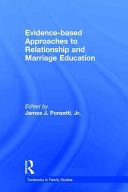

Most ebook files are in PDF format, so you can easily read them using various software such as Foxit Reader or directly on the Google Chrome browser.
Some ebook files are released by publishers in other formats such as .awz, .mobi, .epub, .fb2, etc. You may need to install specific software to read these formats on mobile/PC, such as Calibre.
Please read the tutorial at this link: https://ebookbell.com/faq
We offer FREE conversion to the popular formats you request; however, this may take some time. Therefore, right after payment, please email us, and we will try to provide the service as quickly as possible.
For some exceptional file formats or broken links (if any), please refrain from opening any disputes. Instead, email us first, and we will try to assist within a maximum of 6 hours.
EbookBell Team

5.0
60 reviewsThe book opens with a historical overview of RME development. It is followed by 20 chapters divided in six parts. The initial four chapters focus on fundamentals of relationship and marriage education --program development, required training, delivery systems, and implementation. The three chapters in Part II consider important conceptual and theoretical frameworks used in RME. Part III considers best practices in inventory based programs while Part IV examines six skills-based programs. The chapters in Parts III and IV consider program overview and history, theoretical foundations, needs assessment and target audience, program goals and objectives, curriculum issues, cultural implications, evidence-based research & evaluation, and additional resources. This content covers four categories of effective programs -- design and content, relevance, delivery and implementation, and assessment and quality assurance. Part V presents evidence-based RME with diverse groups and Part VI reviews future directions.
Intended for use in advanced undergraduate or graduate courses in relationship and marriage education, family life education, marriage and relationship counseling/therapy, intimate relationships, relationship development, or home/school/community services taught in human development and family studies, psychology, social work, sociology, religion, and more, this ground-breaking book also serves as a resource for practitioners, therapists, counselors, clergy members, and policy makers interested in evidence based RME programs and those seeking to become Certified Family Life Educators or preparing for a career in RME.